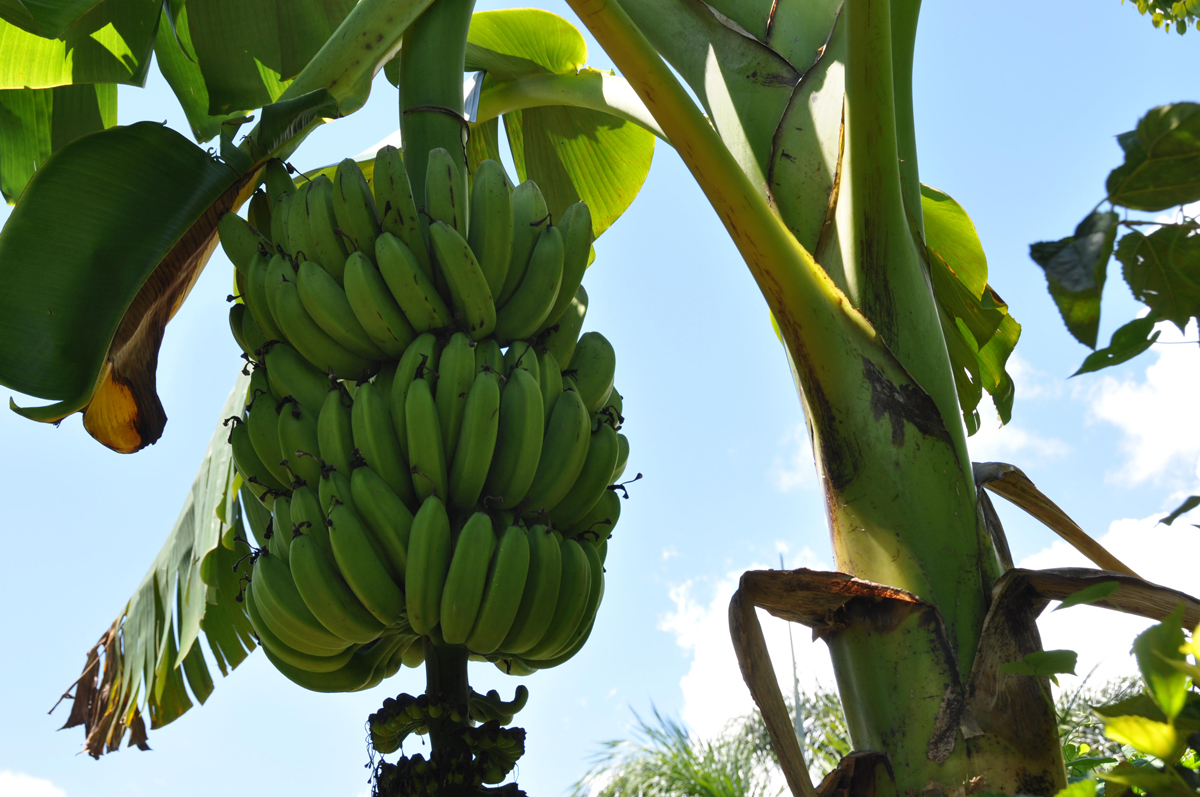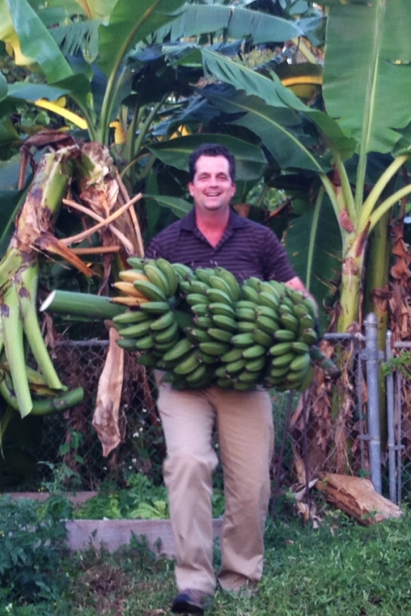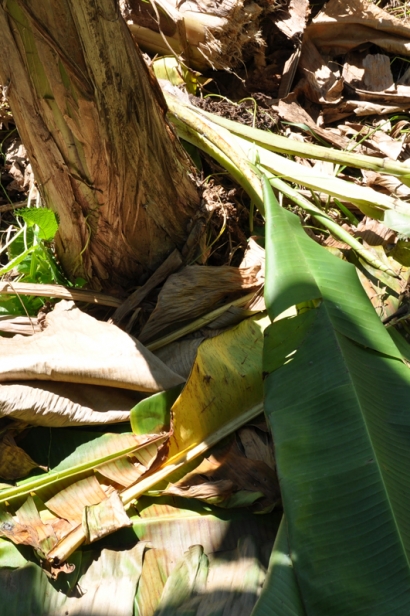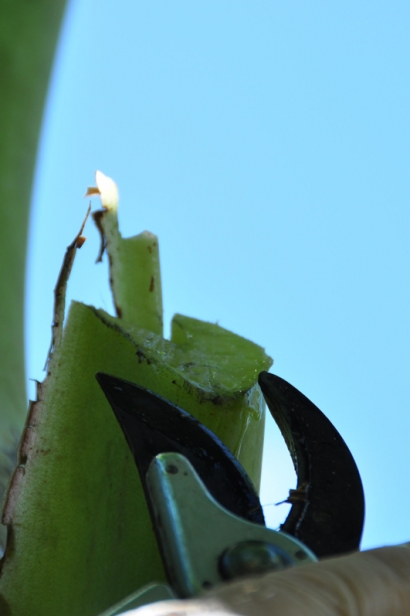Growing Bananas
To grow bananas successfully, you need a location where the plants will get full sun. Choose a banana cultivar (or type) that will be somewhat resistant to some of the nastier fungi that attack banana plants. ‘Goldfinger’, ‘Mona Lisa’, and ‘Sweetheart’ are all recommended cultivars, while ‘Platano Burro’ is a good choice for plantains.
Bananas will sucker. This means the mother plant will make clones of herself, or “pups,” off to the side. These clones can sometimes become too crowded, so you may need to maintain your banana planting by occasionally taking out a banana plant or two. If you remove the plants roots and all, you can give them to a friend to grow. Banana plants transplant very easily. The new plant will retain the cultivar characteristics of the mother plant.
Best Soil
Bananas do best with organic soil and a fair amount of water. They can survive on only the water they receive during South Florida’s rainy season, but if you give them a few hits from the hose during the dry season, they will be much happier. Using mulch around banana plants helps make the soil more organic, and it’s always a good idea to cut up old banana leaves and plant parts, and drop them at the base of your banana planting to decompose and help build the soil.
Bunches are produced at the top of the banana plant. They’re ready to harvest when the bananas on the top part of the bunch begin to turn yellow. Once that yellowing begins, you can harvest the full bunch and let it ripen off of the plant.
Once a banana plant has fruited, it will die. The plant will live on through its pups, but it will slowly wither away. After a plant has fruited, remove it and turn it into compost by simply cutting the old plant into pieces and laying it at the base of the banana planting. The banana pups will take the place of the mother plant and you’ll soon have another round of fruit.
Bananas are a rewarding and easy fruit to grow in South Florida. No tropical backyard can be considered complete without them!
Questions about your tropical fruit trees? Call a UF/IFAS extension agent at 305-248-3311. Homeowners: Adrian Hunsberger (ext. 236); commercial tropical fruit growers: Jeff Wasielewski (ext. 227); commercial vegetable growers: Qingren Wang (ext. 234).








